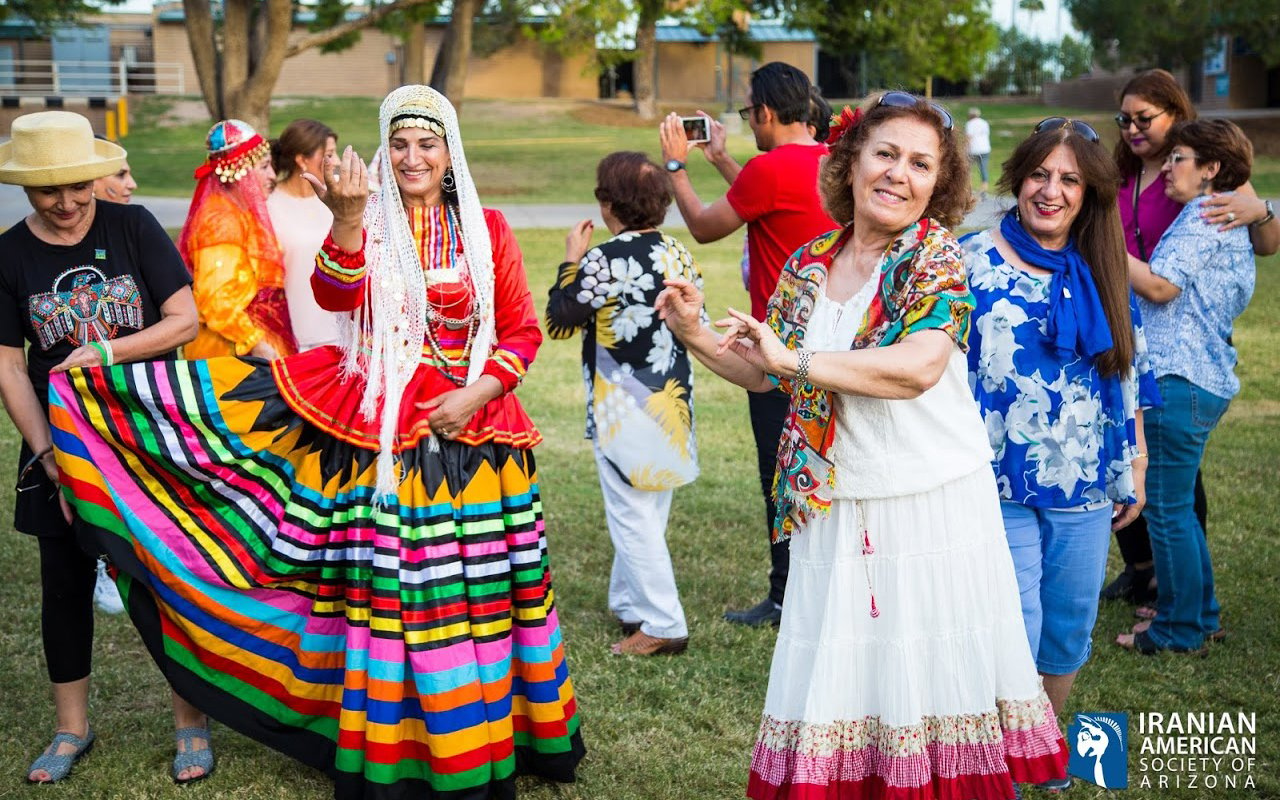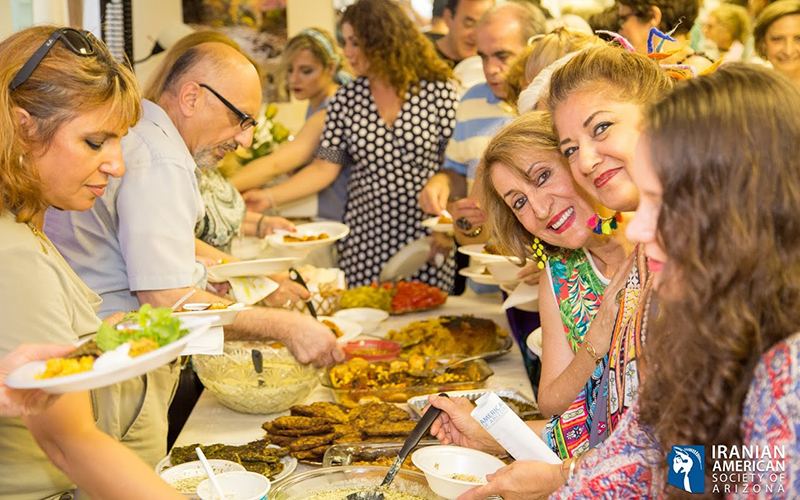
The Arizona Persian Cultural Center, the Scottsdale home of the Iranian American Society of Arizona, has had to transition to a virtual environment because of the COVID-19 pandemic. Prior to the pandemic, the group hosted many live events. (Photo courtesy of the Iranian American Society of Arizona)
For younger users of the Arizona Persian Cultural Center, the Scottsdale home of the Iranian American Society of Arizona, the pandemic-driven transition to virtual classes and events has been relatively easy.
But for older members, who’ve struggled to use Zoom and long for the potlucks and bingo games they enjoyed before COVID-19, the road has been rockier.
“Before (the pandemic), we had a hard time getting younger people to come to the center,” said Fariba Ansari, the society’s vice president and fundraising chair. “Now, we have a hard time getting older people online.”
The society’s mission – maintaining a “sense of community” among Iranian Americans and others by promoting Iranian culture and language – has become crucial in the wake of COVID-19, according to the organization. With the center shuttered since March, it has had to get creative to continue offering the Farsi classes, discussions and other events it used to host in person.
Ansari and Malie Malihi, the society’s treasurer and outreach programs chair, spoke with the Luce Foundation’s Southwest Stories Project about how the organization is working to keep disconnected members and the broader public engaged while raising funds to help families in need.
Responses have been edited for length and clarity.
How has the society responded to rising demand for aid during the pandemic?
Malihi: Yes. More people are getting to the point where they need help. They’ve used all their resources by now, and it’s hard for them to live their daily lives as far as providing food for the family, paying their rent.
Some of them need medical bills to be paid. I actually had a very young lady who was in the hospital, and she had a hard time paying.
We’ve had food drives, and a lot of families from Scottsdale Unified schools would come. We delivered some food to people who were sick or positive for COVID-19, and we are still doing that.
We also came up with the Hardship Emergency Loan Fund to pay utility bills and other essential bills people have.
How does the loan program work?
Malihi: The program helps people who have lost jobs or income.
There are two forms of funds available – a one-time $250 grant and a $1,200 zero-interest loan required to be paid back within one year. We have about 60 families where we’re giving them grant funds or paying their bills or giving them groceries.
Most of our funding comes from donations.
Has the pandemic made it difficult to raise enough money to meet the need?
Malihi: It’s challenging, because we have a lot of people who reach out to us for help. So far, we’ve been able to help everyone who has contacted us.
If we get low on funds, we reach out to the community again, and we ask for help. We don’t like to turn people away just because we don’t have funds.
Ansari: We send out biweekly emails to supporters on our mailing list, which is about 1,500 people, and encourage people to donate.
We also do fundraising on Facebook. I’m very active on there, encouraging people to continue to support us as a community-based, volunteer-based organization. Birthday fundraisers (which allow Facebook users to raise funds for a charity of their choice) have been very successful.
In addition to funding the loan program, we need money for operations and the new tools we’re using during the pandemic. We need Zoom for business. We need video editing. We need Facebook ads. Those things all require fundraising.

The Iranian American Society of Arizona held many celebrations at the Arizona Persian Cultural Center in Scottsdale before it closed because of the COVID-19 pandemic. (Photo courtesy of the Iranian American Society of Arizona)
How have you used those tools?
Ansari: On top of being able to help the community (financially) in this time where we’re home and many have lost their jobs, we help with loneliness. We had a schedule full of people who came to the center before March, so we’ve taken all those events online. We wanted to continue our involvement with the community and with education, arts and cultural events.
In terms of speakers, we have collaborated with Arizona State University professors who are of Persian descent. Racism was one of the topics for a talk, and we’re going to have one about identity coming up. Attorneys have talked about immigration laws. We’ve had physicians talk about COVID and its effects and symptoms, and the progress and the research studies that have been done. We’ve had psychologists and counselors that have come and spoken online about depression and how to deal with being home and locked down.
We also have artists who put together videos of sketching and art. We have yoga instructors who come up with videos, and we post them on a regular basis. We’ve had musicians doing the same thing.
We have poetry night. We have movie nights. The Persian classes for kids also are done over Zoom now.
We have to be creative when it comes to finding fun events that attract people. The videos shouldn’t be too long or too short. They should be interesting enough to attract different generations – some for kids, some for middle ages and some for adults.
The fact that everyone’s home makes me want to make the programming better and more helpful, so they have something to look forward to during the day.
How has the shift to virtual programming affected those who relied on in-person events at the center?
Malihi: I can see that the elderly people in our community are very, very depressed.
When they used to come to the center, it was a big deal for them. They could be together. They could talk to each other in their own language. They could play bingo. They would sing. They would tell jokes, bring their own food. We’d have potlucks and stuff like that. So, this has affected that generation so much.
Ansari: It’s much easier, probably, for the younger generation. I don’t think they mind it. They connect to our events online. But the older generation, not being very tech-savvy, they have a hard time with our Zoom events or our Google Meet events. They have a hard time logging in. But they’re trying.
I definitely think the older generation is lonely at home. Their kids are not visiting them as much, or they’re scared to visit them and get them sick.
The center gave them peace. To see people gather and bring food and break bread together – we don’t have that anymore.
I want to make sure the cultural center survives this, because we use it to give to the community at large in so many different ways. You don’t have to be Iranian. It’s about everyone in our area and bringing the community together.
This story is made possible through a partnership between the Walter Cronkite School of Journalism and the Center for the Study of Religion and Conflict at Arizona State University, with the support of the Henry Luce Foundation.